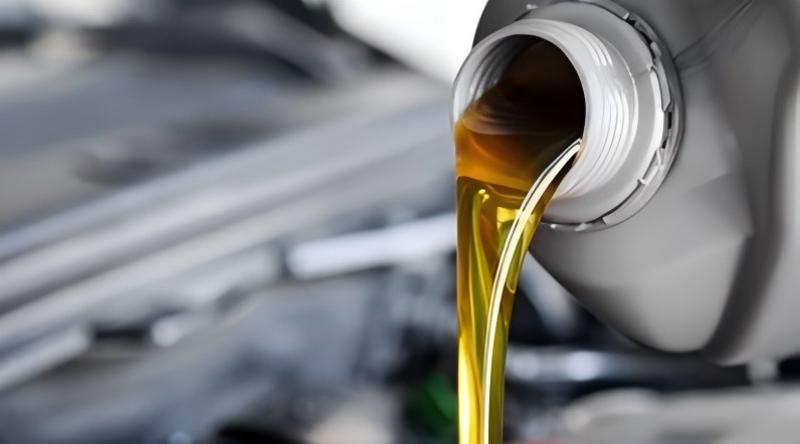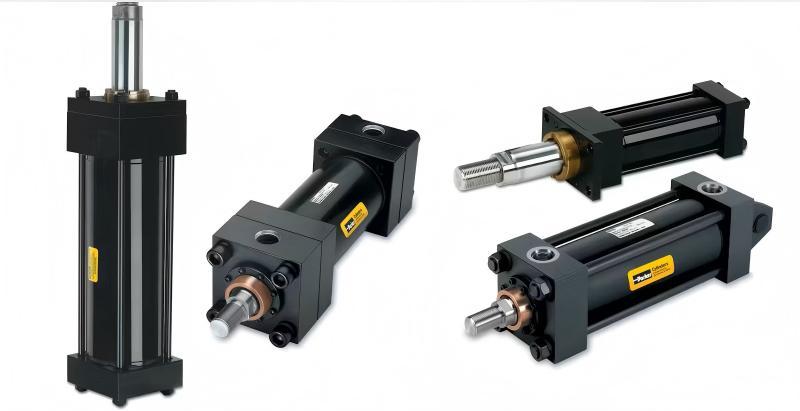Centro de documentação
Manuais e guias técnicos abrangentes para ajudá-lo a dominar as máquinas HARSLE e otimizar sua eficiência na usinagem de metais
Quais são os 5 riscos críticos do impacto ambiental das prensas hidráulicas?
Quando pesquisei pela primeira vez o Impacto Ambiental de Prensas HidráulicasPercebi que essas máquinas potentes podem apresentar uma série de desafios ecológicos se não forem gerenciadas adequadamente. De vazamentos de fluidos que contaminam o solo à pegada de carbono das operações de alta pressão, compreender esses riscos é essencial para qualquer oficina que busque equilibrar produtividade e sustentabilidade. Neste artigo, descreverei os cinco riscos ambientais mais críticos associados às prensas hidráulicas e compartilharei medidas práticas para mitigá-los — para que você possa manter suas operações eficientes e ecologicamente corretas.
Risco 1: Vazamento de fluido hidráulico e contaminação do solo

Causas de derramamentos de fluidos hidráulicos
Já vi pequenas falhas em vedações e mangueiras rachadas levarem a vazamentos inesperados de fluidos. Quando o óleo hidráulico vaza, ele penetra no solo e pode migrar para as reservas de água subterrânea, prejudicando os ecossistemas locais.
Prevenção e Monitoramento
Recomendo instalar bandejas coletoras sob os principais pontos de conexão e realizar verificações visuais diárias nas tubulações e conexões. Investir em vedações de alta qualidade e realizar testes de pressão trimestrais pode reduzir significativamente os incidentes de vazamento.
Risco 2: Consumo de energia e emissões de carbono

Demandas de bombas de alta pressão
Prensas hidráulicas frequentemente operam a pressões de até 400 bar, forçando as bombas a consumir energia elétrica substancial. Cargas pesadas e contínuas se traduzem diretamente em maiores emissões de carbono se a eletricidade vier de fontes não renováveis.
Estratégias para Eficiência Energética
Recomendo a escolha de bombas de deslocamento variável que gerem pressão apenas sob demanda. Implementar um sistema de recuperação de calor para reaproveitar o calor residual para aquecimento da planta pode reduzir o consumo total de energia em 10–20%.
Risco 3: Descarte de fluido hidráulico residual

Riscos ambientais do óleo usado
Com o tempo, o fluido hidráulico se degrada e acumula partículas metálicas, tornando-se um resíduo perigoso. O descarte inadequado — como despejá-lo no ralo — pode colocar em risco os processos de tratamento de esgoto e a vida aquática.
Melhores práticas para reciclagem de fluidos
Trabalho sempre com parceiros de reciclagem certificados que filtram e recuperam óleo usado. Armazenar o fluido usado em tambores lacrados e etiquetados e manter registros de descarte garante a conformidade com as normas ambientais locais.
Risco 4: Poluição Sonora e Impacto na Comunidade

Emissões acústicas da bomba e do cilindro
Bombas hidráulicas e cilindros de movimento rápido podem exceder 85 dB(A), o que não só estressa os operadores, mas também pode perturbar as comunidades próximas se as prensas funcionarem sem silenciador.
Medidas de mitigação
Instalei revestimentos acústicos ao redor dos conjuntos de bombas e adicionei suportes para amortecimento de vibração sob os principais componentes. Trocas regulares de óleo também ajudam a manter as bombas funcionando de forma suave e silenciosa.
Risco 5: Esgotamento de recursos na fabricação de componentes
Matérias-primas para construção de prensas
Aço, alumínio e ímãs de terras raras em motores hidráulicos acarretam um custo ambiental inicial. A mineração e a fundição desses materiais causam perturbações no habitat e alto consumo de energia.
Avaliação do ciclo de vida e considerações de design
Recomendo a escolha de prensas construídas com estruturas de aço reciclado e componentes modulares que podem ser substituídos individualmente. A realização de uma avaliação completa do ciclo de vida (ACV) ajuda a identificar pontos críticos onde você pode migrar para alternativas mais sustentáveis.
Perguntas frequentes
O que causa os maiores riscos ambientais em prensas hidráulicas?
Os maiores culpados são vazamentos de fluidos que contaminam o solo, alto consumo de energia devido à operação contínua da bomba e descarte inadequado de óleo hidráulico usado — todos os quais discuto neste artigo.
Como posso reduzir a pegada de carbono da minha prensa hidráulica?
Mudar para bombas de deslocamento variável, integrar recuperação de calor residual e obter eletricidade renovável são medidas comprovadamente eficazes que reduzem as emissões em até 30%.
Existem fluidos hidráulicos ecológicos disponíveis?
Sim — fluidos biodegradáveis à base de água, glicol e éster podem substituir óleos à base de petróleo. Recomendo testar essas alternativas e verificar a compatibilidade com o fabricante da sua prensa.
Conclusão
Conscientização adequada do Impacto Ambiental de Prensas Hidráulicas capacita você a tomar ações direcionadas — seja modernizando vedações, reciclando óleo usado ou otimizando o uso de energia. Ao abordar esses cinco riscos críticos, você pode proteger suas operações e o planeta. Se desejar mais orientações sobre como implementar essas estratégias ou adquirir componentes ecológicos, entre em contato com nossa equipe pelo e-mail info@harsle.com.













